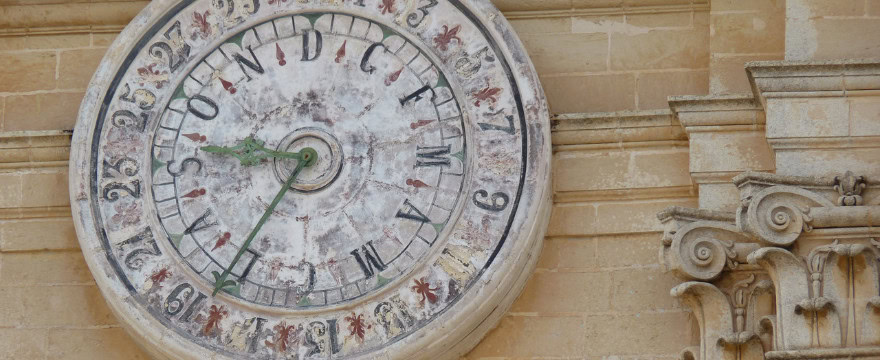It’s about time … New award for literature to Thomas Pynchon
On March 20, the American Academy of Arts and Letters announced that Thomas Pynchon has been awarded the inaugural biennial Christopher Lightfoot Walker Award for a „writer of distinction who has made a significant contribution to American Literature“.1 The award-winning ceremony will take place in New York City on May 23, 2018.
Will Pynchon accept the award in person?
Of course, we do not know. We can only guess and from past experience expect that the reclusive writer will not. If I am not mistaken, Pynchon has already received three awards:
- The Rosenthal Family Foundation Award for The Crying of Lot 49 in 1967
- The National Book Award for Gravity’s Rainbow in 19742
- The William Dean Howells Medal for Gravity’s Rainbow in 1975
The National Book Award (1974) is probably the most famous. It has made it into the cultural scene’s folklore because Pynchon did not accept the award in person. Instead, he agreed on sending stand-up comedian Irwin Corey (1914-2017) to accept the award on his behalf – without Pynchon knowing Corey personally and without Corey knowing Pynchon personally, as Corey states in a shooting remembering the ceremony.3
Who will be accepting the award this time? Steven M. L. Aronson, initiator of the award on behalf of the Walker estate speculates:
It sets a high bar that the first recipient of the Christopher Lightfoot Walker Award for Literature is a figure of such stature. We couldn’t be more pleased with the choice – and of course, now we’ll find out if the famously reclusive Pynchon will send, say, Patti Smith to accept for him!4
Do we really want Pynchon to appear at the ceremony?
Curiosity is a human instinct. Do we, however, need to see him in person, finally? No. Listen to him in person? No. Because we do respect his privacy. Because what we are really interested in, what takes us further, are his novels.
There is just as little need for the scientist to explain his theories or practical results at an award-winning ceremony because you can read all of that in his papers or books, as there is for the artist or writer to explain his piece of art or his novel. You cannot explain a work of art. You have to read it – with all the implications of “reading”.
Neither is there any need to listen to Pynchon clarify his poetic concepts. Ask the magician: does he explain his tricks? No. He would take away our experience of the magical act, take away our instinct to solve the riddle, or take away the wonder and amazement of what we perceive and experience.
Or, as Elfriede Jelinek, Austrian translator of Gravity’s Rainbow and winner of the Nobel Prize for Literature (2004) had it in 1976:
wir sprechen hier von einem mann, den keine person des offiziellen us-kulturbetriebes kennt. wir sprechen von jemand, den man also zwangsläufig nur durch das, was er schreibt, kennenlernen kann.5
After having translated Gravity’s Rainbow she was sure that – since Pynchon was unknown in the official US cultural complex – the only way to get to know Pynchon was by reading his works.
The only thing that might be interesting, however, would be Pynchon’s thoughts on his field of expertise: the position of literature in society, in politics, in life. But other people could do that as well. We should.
What is the American Academy of Arts and Letters?
According to its website , the American Academy of Arts and Letters was founded in 1898 as a society of America’s top architects, artists, composers, and writers. All in all it is comprised of 250 lifetime members from the art world. The aims of the Academy are to elect new members, to promote an interest in literature, music and the fine arts by organizing exhibitions and funding performances, to give out more than 70 awards and prizes. Additionally, it purchases and donates artworks to museums within the USA.

The Christopher Lightfoot Walker Award
The award Pynchon will receive – if he accepts it – is being awarded for the first time: The Christopher Lightfoot Walker Award for Literature. It is part of a $15.5 million bequest.
Amber Lightfoot Walker (1919-2014), who was married to Angus Lightfoot Walker (1909-1985), once chairman of the executive committee of the City Investing Company of New York, requested in her will that the writer Steven M. L. Aronson and Robert Eddy Armstrong donate part of her fortune to cultural institutions in New York City. All the awards are to carry the name of Amber and Angus’s son Christopher (born 1954) who passed away unexpectedly in 2012.
All in all, the American Academy of Arts and Letters has received $1.5 million for the Christopher Lightfoot Walker Award for Literature to give out biannually to American writers (this year $100,000).
Who chose Pynchon as first recipient of the Award?
Recipients of awards like the Christopher Lightfoot Walker Award that are curated by the American Academy of Arts and Letters are usually chosen by a committee of Academy members.6
These Academy members from the Department of Literature chose Pynchon as a recipient of the inaugural award:
- Kwame Anthony Appiah: born on the same date as Thomas Pynchon: May 8, but in 1954, London; Ghanaian-American philosopher; Academy member since 2008
- Russell Banks: born March 28, 1940, Newton, Massachusetts; American writer of fiction and poetry; Academy member since 1998
- Louis Begley: born October 6, 1933, Strip (Poland then, Ukraine today); American writer of fiction; Academy member since 2011
- Amy Hempel: born December 14, 1951, Chicago, Illinois; American short story writer and journalist; Academy member since 2017
- Joy Williams: born February 11, 1944, Chelmsford, Massachusetts; American novelist, short story writer, essayist; Academy member since 2008; for her State of Grace, in 1974, the year Gravity’s Rainbow received the National Book Award, among the finalists of the National Book Award
Why was Pynchon chosen for the Award?
Us Pynchon readers know, this is what the American Academy of Arts and Letters committee members say:
Even if Gravity’s Rainbow had been his only novel, the contribution to American literature made by this unfailingly political, devastatingly funny, and brilliant writer would have been indelible.7
Louis Begley (2018)
More than nearly any other writer, Thomas Pynchon has shaped contemporary American literature. […] From its first appearance in the early 1960s, Pynchon’s work has been praised for its political and historical seriousness, for its literary ambition, and for the extraordinary range of the author’s intelligence and erudition.8
Russell Banks (2018)
More than any other living writer, he has caught the inward movements of our time in outward manifestations of art and technology so that in being historical he must also be marvelously exorbitant.9
Amy Hempel (2018) quoting from Richard Poirier’s review (1973) of Gravity’s Rainbow
Well, it does and it does not. Thomas Pynchon might ask himself that same question, also the members of the American Academy of Arts and Letters who chose him.
Pynchon and some of us might agree with Erin Barnett from Electric Lit thinking it makes more sense to give out such a prize to young, and probably marginalized authors struggling to make a living and to attract attention.10 We do not know, however, what Pynchon is up to. In any case, he will spend that money wisely, we are inclined to think.
The Academy members themselves might have wanted to erect their first lighthouse when giving out the prize for the very first time. Maybe they will reward a literary start-up in 2020 when the next Christopher Lightfoot Walker Award is due.
Resources and further reading
- Irwin Corey’s “Thomas Pynchon. National Book Award. 1973 [sic] ” on YouTube
- Website of the American Academy of Arts and Letters
- Richard Poirier’s review of Gravity’s Rainbow , reproduced on Tim Ware’s blog Thomas Pynchon. American Novelist
Credits
- Featured image for the blog post: “Clock on St. Paul’s Cathedral in Mdina, Malta” © Utz Klöppelt | Reading Pynchon, September 2013.
- “Announcement by the American Academy of Arts and Letters (AAAL): Award to Thomas Pynchon (Screenshot)” © Reproduced with kind permission of the AAAL, screenshot taken by Utz Klöppelt | Reading Pynchon on March 24, 2018.
Footnotes
1 American Academy of Arts and Letters. “Writer Thomas Pynchon Wins Inaugural $100,000 Christopher Lightfoot Walker Award in Literature”, March 2018, URL: https://artsandletters.org/pressrelease/writer-thomas-pynchon-wins-inaugural-100000-christopher-lightfoot-walker-award-in-literature/ (Accessed April 6, 2018).
2 National Book Foundation. “Gravity’s Rainbow by Thomas Pynchon”, July 30, 2009 on the National Book Foundations’s blog, URL: http://www.nbafictionblog.org/nba-winning-books-blog/1974.html (Accessed April 6, 2018).
3 Irwin Corey. “Thomas Pynchon. National Book Award. 1973 [sic]”, YouTube, URL: https://www.youtube.com/watch?v=I-NBPpM–pY (Accessed April 6, 2018).
4 Quoted from: American Academy of Arts and Letters. “Writer Thomas Pynchon Wins Inaugural $100,000 Christopher Lightfoot Walker Award in Literature”, March 2018, URL: https://artsandletters.org/pressrelease/writer-thomas-pynchon-wins-inaugural-100000-christopher-lightfoot-walker-award-in-literature/ (Accessed April 6, 2018).
5 Elfried Jelinek. “kein licht am ende des tunnels – nachrichten über thomas pynchon”, Manuskripte: Zeitschrift für Literatur 52 (1976), p. 36.
6 American Academy of Arts and Letters. “Academy members”, URL: https://artsandletters.org/academy-members/ (Accessed April 6, 2018).
7 Quoted from: American Academy of Arts and Letters. “Writer Thomas Pynchon Wins Inaugural $100,000 Christopher Lightfoot Walker Award in Literature”, March 2018, URL: https://artsandletters.org/pressrelease/writer-thomas-pynchon-wins-inaugural-100000-christopher-lightfoot-walker-award-in-literature/ (Accessed April 6, 2018).
8 Quoted from: American Academy of Arts and Letters. “Writer Thomas Pynchon Wins Inaugural $100,000 Christopher Lightfoot Walker Award in Literature”, March 2018, URL: https://artsandletters.org/pressrelease/writer-thomas-pynchon-wins-inaugural-100000-christopher-lightfoot-walker-award-in-literature/ (Accessed April 6, 2018).
9 Quoted from: American Academy of Arts and Letters. “Writer Thomas Pynchon Wins Inaugural $100,000 Christopher Lightfoot Walker Award in Literature”, March 2018, URL: https://artsandletters.org/pressrelease/writer-thomas-pynchon-wins-inaugural-100000-christopher-lightfoot-walker-award-in-literature/ (Accessed April 6, 2018).
10 Erin Bartnett. “What is the point of literary awards?”, Electric Lit, March 23, 2018, URL: https://electricliterature.com/pynchon-christopher-lightfoot-walker-award-whiting-e2f84f790f6b (Accessed April 6, 2018).



Postscriptum: The award – presented by Russell Banks – was accepted by Thomas Pynchon’s wife Melanie Jackson.